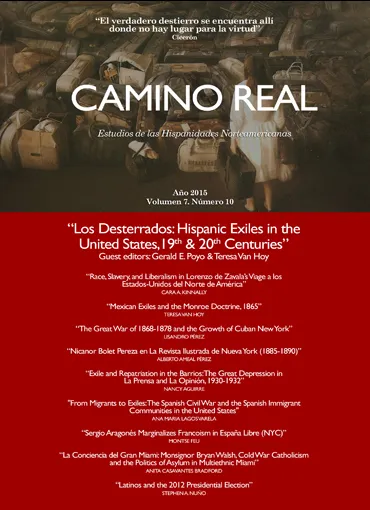
This article analyzes the relationship between the career of Irish immigrant priest Monsignor Bryan Walsh, Miami’s increasingly activist Catholic Church, and the diverse waves of Latin American and Caribbean immigrants that transformed MiamiDade County between 1960 and the mid-1990s. In it, I explore the relationship between Monsignor Walsh’s highly visible efforts on behalf of Miami’s Cuban exile community and his less acknowledged advocacy for the city’s later Central American and Haitian asylum seekers. During the first half of the 1960s, Walsh’s perceived success as administrator of the Cuban Children’s Program established his enduring reputation as a committed “Cold Warrior” and loyal friend to U.S resident Cuban exiles; however, I argue that Monsignor Walsh’s support for the Cuban exile community, while harmonizing with his anti-communist politics, also reflected a deeper spiritual commitment that would lead him by the 1980s to advocacy on behalf of the other displaced Latin American and Caribbean peoples who began seeking refuge in Miami in the 1970s. Adopting an inclusive stance on behalf of the “stranger and the poor” in Miami-Dade County, I conclude that Monsignor Walsh anticipated the Catholic Church’s new priorities following the Second Vatican Council, even as he offered an early challenge to the Cold War calculus underlying immigration policies that continue to draw arbitrary and self-serving distinctions between those who are welcomed as political exiles and those who are excluded as economic and ostensibly “voluntary” migrants.


